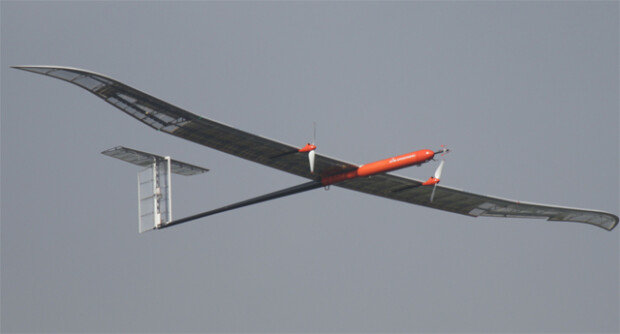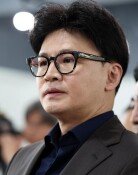LG Chem flies lithium-sulfur battery aircraft into stratosphere
LG Chem flies lithium-sulfur battery aircraft into stratosphere
Posted September. 11, 2020 07:35,
Updated September. 11, 2020 07:35

LG Chem has successfully flown an unmanned aircraft powered by a lithium-sulfur battery into the stratosphere. A point of pride for LG Chem, lithium-sulfur batteries were presented during the June meeting between Koo Kwang-mo, chairman of LG, and Chung Eui-sun, the executive vice chairman of Hyundai Motor Company.
On Thursday, LG Chem announced that an unmanned aircraft named EAV-3 carrying a lithium-sulfur battery flew 13 hours at a KARI (Korea Aerospace Research Institute) aviation facility in Goheung, South Jeolla Province. During the flight, the EAV-3 spent seven hours flying in the stratosphere altitude between 12 and 22 kilometers. The stratosphere (altitude between 12 and 50 kilometers) is a tricky space for aircraft to fly for lack of oxygen.
Lithium-sulfur batteries are being hailed as the next big thing that will replace lithium-ion technology. The energy density per weight is over 1.5 times higher than lithium-ion batteries thanks to the use of lighter materials such as sulfur and lithium metals. Lithium-sulfur batteries are also lighter than lithium-ion batteries and more cost-competitive as they don’t use rare metals. For those reasons, lithium-sulfur batteries are considered as the core technology determining the performance of future transport vehicles such as electric vehicle, long-endurance drones, and personal aircraft.
When Vice Chairman Chung Eui-sun met with Chairman Koo Kwang-mo at LG Chem’s Ochang factory in June, the management of Hyundai Motor Group were reportedly briefed on the direction of future battery technologies including lithium-sulfur battery, long-life battery, and solid-state battery.
LG Chem is planning to produce a pilot lithium-sulfur battery to test-fly a long-endurance drone to hover midair for a few days. The South Korean chemical company is also aiming to embark on the mass production of lithium-sulfur batteries whose energy density is twice as high as that of lithium-ion batteries.
will@donga.com






